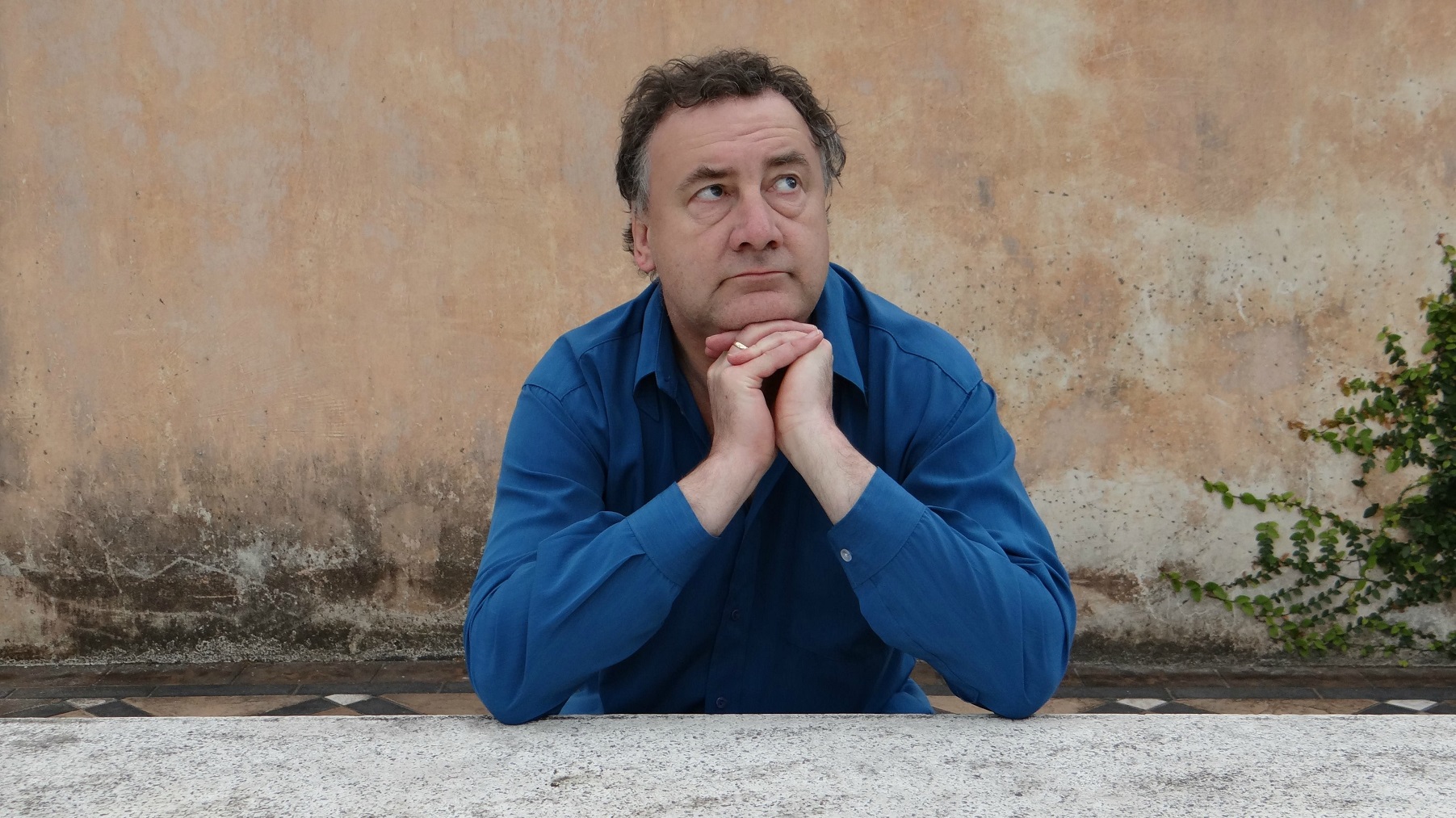
Yep, the new government is shaping up as a triple-act to rival The Three Stooges, but musician and writer Matthew Bannister says it is double acts for which our nation appears to have a particular talent.
To prove his point, he has written a book about one of them.
Back before MMP was a gleam in Rod Donald’s eye and Aotearoa had one leader at a time, The Front Lawn burst on to the nation’s stages with a unique mix of theatre and song.
From our vantage point a few decades on, The Front Lawn pairing of Don McGlashan and Harry Sinclair can be bracketed with the Top Twins and Flight of the Conchords as part of a rare run of quality two-handed entertainment, Bannister says.
"I think that is interesting, that we have this history of these variety duos that can do music, but can also do funny. Maybe it is a pragmatic Kiwi thing, expecting people to be all-round entertainers."
It might be something to do with surviving in the limited live performance market of Aotearoa, he says.
"So, you didn’t like that song? I’ll tell you a joke, I’ll do a skit, you know. Being able to adapt in front of a crowd of people basically, give them what they want to hear, I guess."
And in terms of making that work, you need at least two people, that’s the minimum, you need someone to react to. (The Front Lawn did later expand their roster to three, adding Jennifer Ward-Lealand.)
Former Dunedin and now Kirikiriroa (Hamilton)-based Bannister, known in these parts in particular as one of the two frontmen for Dunedin Sound originals Sneaky Feelings, published his book Songs From The Front Lawn earlier this year and is touring the book south next week.
The book is part of Bloomsbury Publishing’s international 33⅓ series on well-known records, a series that it recently extended into Australasia.
Bannister jumped at the chance to write about The Front Lawn’s 1989 album, Songs From The Front Lawn, having earlier researched McGlashan’s output as part of his PhD focusing on masculinity in New Zealand music in the ’80s.
"I think it is a good series because people put a lot of emotional investment into albums, or at least they used to," he says.
The project was made more straightforward for Bannister by having seen The Front Lawn play, back in the ’80s, and later playing with McGlashan in the Muttonbirds when he stepped in to cover lead-guitar duties for an Australasian tour.
The album in question is now widely regarded as a classic. It was a finalist for album of the year at the time and produced charting singles When You Come Back Home and The Beautiful Things. Another song, Andy, later made the APRA Top 100 New Zealand Songs of All Time.
The duo got together in 1985 and Bannister says their process involved an element of making it up as they went.
"It’s funny, because Don said to me one of the first shows they did was in Dunedin at the Fortune Theatre. And they weren’t quite sure, they thought they were going to do some quite serious kind of stuff, but then basically they got on stage — and they were using amplifiers at that point — and all of a sudden all the amplifiers cut out and stopped working. So, Don disappeared behind the curtain and was rustling around behind the curtain trying to plug things in. And Harry was just looking at the audience and the audience just started laughing at him, just started smirking and giggling and Harry thought, ‘obviously this is what we are supposed to be doing, we are supposed to be making people laugh’. You know? So it was kind of like the audience, they told them what to do."
As for the album itself, among its distinguishing characteristics was its very Kiwi flavour, Bannister says.
"Much more than most of their contemporaries, The Front Lawn focused on details about living in New Zealand, place names, habits, customs, vocabulary et cetera and that was kind of unusual, I suppose, in popular music at that time. If you look at the Dunedin Sound, although it was from Dunedin there were precious few references to Dunedin in it.
"It was almost like the Dunedin Sound was an escape from Dunedin, really. It was kind of like imagining living somewhere else.
"But the Front Lawn was very much about saying, yes, we live in New Zealand, and yes, it is not a bad place to live.
"I think that was partly because Don and Harry had been overseas for a couple of years before they got back together and started The Front Lawn. And they had been living in Paris and London and New York, and on one hand I think they saw a lot of art and performance and music that gave them new ideas. At the same time I think also they ultimately wanted to bring it all back to New Zealand and apply what they had learnt to create something that was new and different."
Bannister’s book launch-gig in Dunedin will involved him playing some songs from The Front Lawn and a few of his own — a couple of new songs, maybe a couple of classics.
"I might do them on a piano if I can find a piano, just to make it a bit different," he says. "Also, so I can change the key down, because as I get older I think it is harder to hit the high notes. I am having to change the key in a couple of songs just to keep them singable."
He’ll also be joined by Ian Chapman, who previously published a book in the same series about ’70s glam rockers Space Waltz, and Dunedin singer-songwriter James Dignan.
The gigs
- Thurs, Dec 14, The Crown Hotel, Dunedin
- Sat, Dec 16, One Man Bannister And The Flaming Bridges, Settlers Hall, Oamaru












